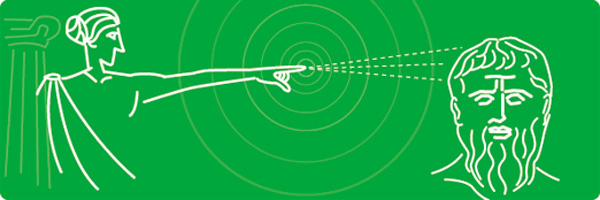- トップページ
- Fantastic Voyagers
- Did people 3000 years ago not have consciousness?

Did people 3000 years ago not have consciousness?
When did humans become “conscious”?
Do we really need any consciousness in the first place?
Here’s an introduction the bold and bizarre theory of the “bicameral mind” of ancient man.
If somebody were to ask you, “Are you conscious?” surely everybody will answer “Yes, of course.” But what if the question was “Is consciousness really necessary for daily life?” Some might state that “as long as I’m not sleeping, I’m always conscious and always aware of what I’m doing.” But there are probably also those of us who would say that “many of the things I do every day, I seem to do without being particularly aware of doing them.”
For example, when you walk from your home to the station, are you really aware of every single step you take? “First I take a step forward with my right leg, then I push back slightly on my left foot and take a step forward with my left leg…” Hardly. It is often said that if you are too conscious of your movements when you ride a bicycle, you soon fall off. Athletes are told by their coach “not to think.” A fluent pianist is not aware of how each of her fingers move. Sometimes consciousness simply gets in the way. Often we would do perfectly fine without it. People who make great discoveries or come up with brilliant new ideas frequently explain that “it just suddenly popped into my mind.”
Based on such queries, I would like to introduce the book The Origin of Consciousness in the Breakdown of the Bicameral Mind. The author, Julian Jaynes (1920 – 1927), started out with the classic question “What is consciousness?” but the bizarre theory he ended up with after long and careful though was that 3000 years ago, people didn’t have any consciousness at all; in the right half of their brains, they heard “the voices of the gods,” and lived their lives following those voices! However, 3000 years ago there were already many ancient civilizations flourishing all over the world. What could he possibly mean by saying that the people in charge of those civilizations lacked consciousness?
In fact, Jaynes focused on the Classic Greek epic poem, the Iliad. There, the hero Achilles, King Agamemnon and the other protagonists frequently lend an ear to the words of the gods, and then proceed to do as they have been told. Carefully scrutinizing and analyzing the text, Jaynes was unable to find a single word meaning “consciousness” or “mind,” nor was there any reference whatsoever to what we now would call “free will.” Jaynes’s conclusion was that people back then had a “bicameral mind” that let them listen to the voices of the gods.
With the diffusion of writing, man gradually acquired a consciousness of the same type as we have today, and at the same time he lost his ability to hear the voices of the gods… Jaynes goes on to analyze the Odyssey, the sequel to the Iliad, and the accounts of the Old Testament prophets, who still heard voices, and delivers an audacious description of the transition from a bicameral mind to a modern-style consciousness. Jaynes’s theory has its pros and cons, of course, but without a time machine we will never have any clear proof either way. Nevertheless, the book is still extremely interesting to anybody who has ever thought about human consciousness. After all, the “problem of consciousness” remains one of our greatest mysteries.
